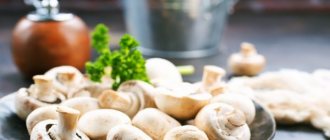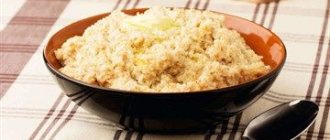The diet of a nursing mother is very limited. Women have to give up many familiar products and look for alternatives, especially in the first months of breastfeeding. Therefore, mothers are interested in whether spinach can be consumed while breastfeeding. Today we’ll talk about this product, and figure out how to eat spinach correctly and when, and also introduce you to delicious and healthy recipes.
Spinach is not very popular in Russia, but it can be very useful for mothers during breastfeeding.
Composition of spinach
Spinach is considered a storehouse of nutrients and vitamins. Nutritionists classify it as a particularly valuable food product. Therefore, spinach will not be superfluous during breastfeeding.
It includes:
- vitamins A, C, E, P, K;
- minerals (iron, potassium, manganese, iodine);
- folic acid;
- cellulose;
- carotenes;
- protein.
Many women ask whether a nursing mother can have spinach. Greens have special benefits for the body. The energy value of 100 g of spinach is only 23 kcal. In terms of protein, it is second only to legumes and peas.
The benefits of spinach for the female body
Spinach has many positive properties. It is low in calories, so it cannot lead to weight gain. Spinach acts as a prophylactic agent that can restore a person’s immunity and strength. That’s why it’s so important that a woman’s diet during breastfeeding includes greens.
Spinach helps cope with the following problems:
- Removes harmful substances from the body.
- Helps strengthen the immune system and acts as a preventative against colds.
- Helps the body recover from serious mental and emotional stress.
- Improves mood, eliminates depression.
- Improves the functioning of the digestive organs.
- Restores the elasticity of the skin.
- Improves visual acuity.
- Helps normalize metabolism.
- Strengthens the skeletal system and prevents vitamin D deficiency in infants.
- Prevents the formation of cancer cells.
- Normalizes a woman's hormonal levels.
Spinach is a special product. It is quickly absorbed in the digestive system. Thanks to this, the newborn rarely develops allergies or stomach problems. Greens eliminate inflammatory processes. Spinach is necessary for the baby for the proper formation of internal organs.
Beneficial features
Spinach contains useful elements, including fiber, vitamins A, C and E, group B, niacin, magnesium, zinc, phosphorus and other minerals. This is a low-calorie product with minimal risk of allergies. This type of greenery effectively cleanses the body and fights many diseases, tones and restores strength. Therefore, spinach is not only possible, but also necessary to eat while breastfeeding.
Spinach performs the following beneficial functions:
- Cleanses the body, removes waste and toxins;
- Normalizes the hormonal system;
- Strengthens the immune system, stops inflammatory processes and prevents colds;
- Gives strength and restores performance;
- Relieves stress and fatigue, improves mood;
- Normalizes digestion and helps with constipation;
- Supports eye health and maintains visual acuity;
- Improves the condition of hair and skin;
- Relieves eye tension and fatigue, prevents cataracts and other eye diseases;
- Helps with ulcers and gastritis, migraines and hypertension, asthma and arthritis;
- Has a positive effect on the functioning of nerve cells and stimulates brain activity;
- Improves appetite and regulates metabolism;
- Strengthens the bone skeleton and prevents rickets, which is very important for newborns due to vitamin D deficiency;
- Prevents the appearance and development of cancer.
Spinach, unlike many green vegetables, is easily digested by the body. Therefore, it does not cause stomach upset and does not increase colic in a newborn. Such greens reduce weight, have an anti-inflammatory, tonic and restorative, calming and relaxing effect for mother. In addition, spinach is involved in the formation and development of the baby’s internal organs.
Spinach while breastfeeding
Women during lactation are allowed to use this product, but this must be done with caution. It is impossible to completely eliminate the occurrence of a negative reaction of the body and allergies.
It is best to introduce spinach into the diet of a nursing mother from 2 months after the start of feeding. In the first days, it is important to monitor the baby's reaction. Indeed, within 48 hours, negative symptoms may appear, such as nervousness, redness of the skin and deterioration in general condition. If no such reaction of the baby’s body appears, then spinach can be freely included in the woman’s diet.
If negative symptoms occur, the product should be discarded and the child should be shown to a pediatrician.
It is not recommended for nursing mothers to eat spinach if they have colitis or kidney disease. The acid contained in the product negatively affects the functioning of the bladder. Experts recommend consuming only young greens, because they still contain very little of this negative component.
It is not recommended for a woman to abuse any products during breastfeeding. After all, this can cause a negative reaction in the baby’s digestive system. You should eat a small amount of greens per day.
What form does spinach come in?
Greens can be included in dishes both fresh and baked. Proper heat treatment can preserve most of the beneficial substances in spinach. This process promotes more thorough digestion of food.
You need to choose a quality product. After all, spinach spoils quickly and therefore cannot be stored for a long time.
Before eating, spinach must be thoroughly rinsed under running water. Yellow and damaged leaves should also be discarded.
Spinach can be frozen in summer and used in vegetable salads in winter. In order to minimize the effect of oxalic acid, you can prepare a smoothie from it along with fermented milk products.
Tips for use
The introduction of spinach into the diet during breastfeeding in the first month after childbirth, and in subsequent months, causes a lot of controversy among experts. If you consume the product in large quantities, it can lead to disruption of the normal functioning of the digestive system.
Spinach is best consumed within reasonable limits. Here are the main recommendations:
- Wash spinach thoroughly before eating. Drooping leaves should not be eaten.
- The largest amount of useful substances is present in the fresh product. They are lost during heat treatment.
- It is important to monitor the expiration date of spinach. Dishes containing this product must be eaten fresh, because they quickly lose their properties. The optimal time is 1-2 days.
Spinach also cannot be stored for long periods of time. In the refrigerator it retains all its beneficial qualities for 2 days.
Preparing for the winter (freezing)
By freezing, you can preserve spinach throughout the winter. For these purposes, it is best to choose your own spinach grown without chemicals, especially if you are going to eat it while breastfeeding. Freezing steps:
- Discard damaged or very hard leaves.
- Wash the spinach and place it on a towel to dry thoroughly.
- Cut into pieces of your usual size. This will allow you to use it without waiting for complete defrosting.
- You can blanch the spinach to reduce its bulk. But first of all, it takes time. Secondly, this is still heat treatment, which in the future will not allow it to be used in all dishes.
- Place the spinach in freezer bags or containers. It is best to freeze it in portions, so it will be convenient to use.
Spinach Recipes
Many women prepare delicious spinach dishes. There are a variety of recipes containing this herb.
Spinach casserole is easy to prepare. For it you need to take the following products:
- spinach (400 g);
- 2 eggs;
- lemon juice;
- boiled noodles (100 g);
- butter;
- salt.
Beat the eggs with salt and add the remaining ingredients. Place the resulting mass on a greased baking sheet and bake at 180 degrees. Cooking time: 30 minutes.
Spinach soup is one of the simplest and most delicious dishes. To prepare it you need:
- spinach (200 g);
- chicken meatballs (4 pcs.);
- 2 eggs;
- bouillon;
- salt.
Place meatballs and chopped spinach into the boiling broth. When these components are ready, you need to add chopped eggs. The soup should be salted to taste.
To prepare chicken rolls, you need to take 2 cups of spinach, breast, hard cheese, dill, onion and olive oil.
First, chop the greens and onions. The last component is fried until cooked. Then spinach is added. Chicken breast is beaten. Vegetables are placed inside and sprinkled with hard cheese. Roll the breast into a roll and secure it with a toothpick. Cook covered for about 30 minutes.
Folk recipes
Spinach makes good oral remedies:
- To relieve constipation, you need to mix finely chopped leaves with horseradish and cucumber, add water to the pulp and take 50 g before bed.
- If you have a severe headache, squeeze out the juice of the spinach and cranberries, pour it with water, adding lemon zest. Drink 100 grams of this mixture 2-3 times a day.
With the help of tincture, inflammation of the gums is relieved. The leaves are applied to insect bites and abscesses. Leaves boiled with olive oil heal burns. The paste is applied to the face as a mask to restore skin and color.
For inflammatory processes of the skin, simply apply the leaves to the damaged areas, or prepare a gauze bandage soaked in juice.
How to freeze correctly
Have you decided to start eating spinach while breastfeeding? It can be frozen. In this case, all its beneficial qualities will be fully preserved. To do this, you must adhere to the following rules:
- Spinach leaves are pre-washed and chopped. Then they are placed in a plastic container.
- The greens are filled with water in a container.
- Freezing is best done in deep mode. This is done to preserve its nutrients.
The freezing process can be carried out only once. Otherwise, all beneficial substances will be completely destroyed.
Harmful properties of spinach
The useful and unique qualities of the product have a beneficial effect on a woman’s body during breastfeeding. Despite this, it also has negative properties. The main one is the high content of oxalic acid. Excessive amounts of it can lead to fatigue and deterioration in general well-being. There are a number of other contraindications to eating spinach.
The product is harmful to women and newborns in the following cases:
- pathologies of the bladder associated with the formation of stones;
- diseases of the biliary tract;
- kidney pathologies;
- thyroid diseases;
- damage to the duodenum.
The negative effects of spinach during breastfeeding can also occur when consuming a spoiled product. Greens that were grown in ecologically clean areas are allowed to be included in the diet. Otherwise, the chemicals may negatively affect the functioning of the baby's digestive system.
The age of the spinach also plays an important role. It is young greens that contain the minimum amount of nutrients. And the oxalic acid level remains within acceptable limits. Spinach leaves should look fresh and smell good. Greens that have long ripened are completely unsuitable for inclusion in the diet of a nursing mother.
Harm and contraindications
Like all foods, spinach has some contraindications. It contains a large amount of acids, which negatively affects the body in diseases of the kidneys and urinary tract, liver, for example, in urolithiasis. In addition, the product should not be eaten if you have peptic ulcers of the stomach and intestines and gastritis with high acidity, especially in acute diseases. To minimize the harm from oxalic acid, consume young leaves; their concentration of the substance is lower than in an old plant.
It is not recommended to eat a lot of spinach while taking anticoagulants, as it contains a large amount of vitamin K, which affects the composition of the blood. In addition, you need to limit the amount of product in the diet if your breastfed baby has tummy problems and is bothered by colic. Acids in the composition can aggravate the problem. We should not forget that even the safest product can cause allergies, and there is also a risk of individual intolerance. Therefore, when breastfeeding, spinach should be administered carefully.











